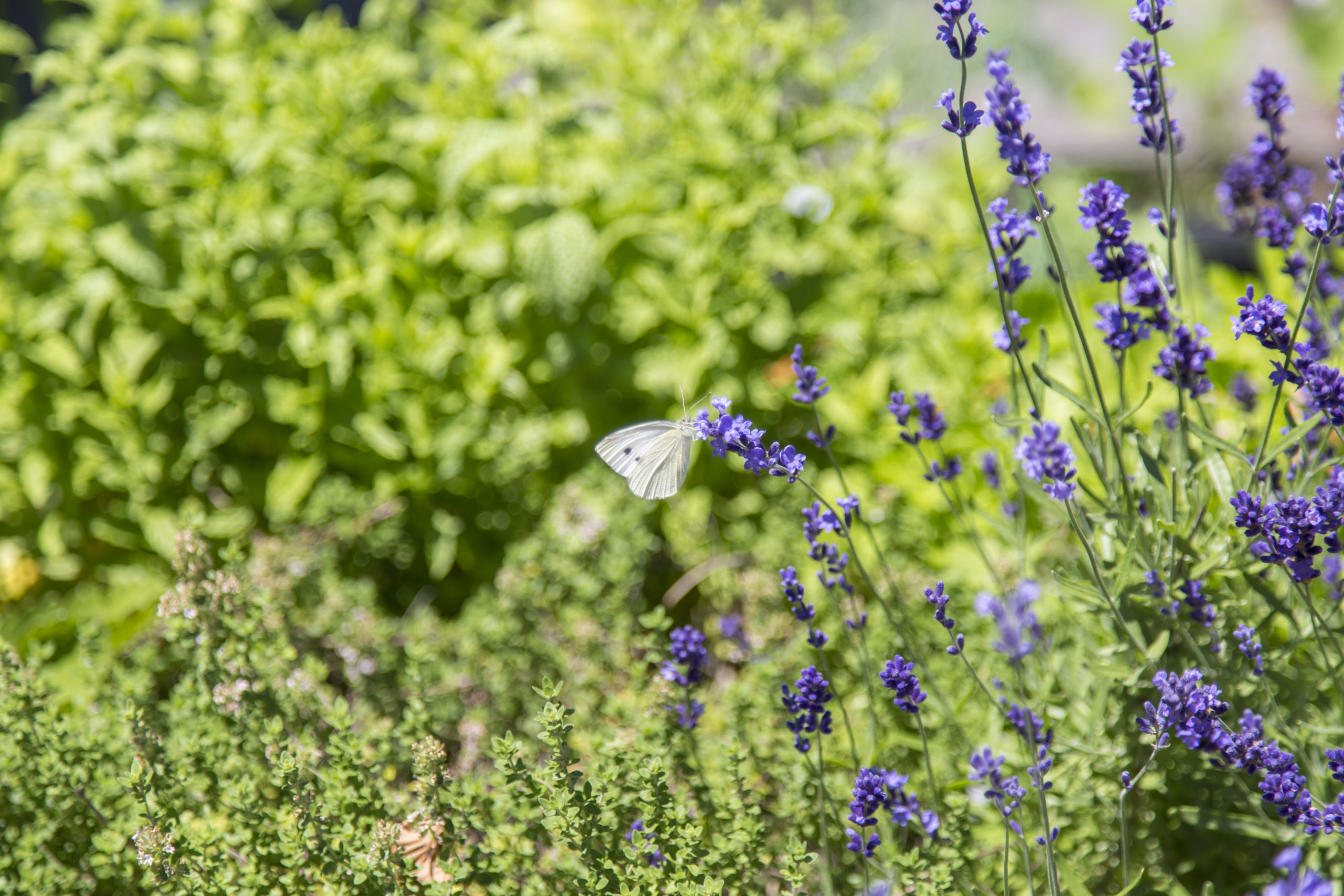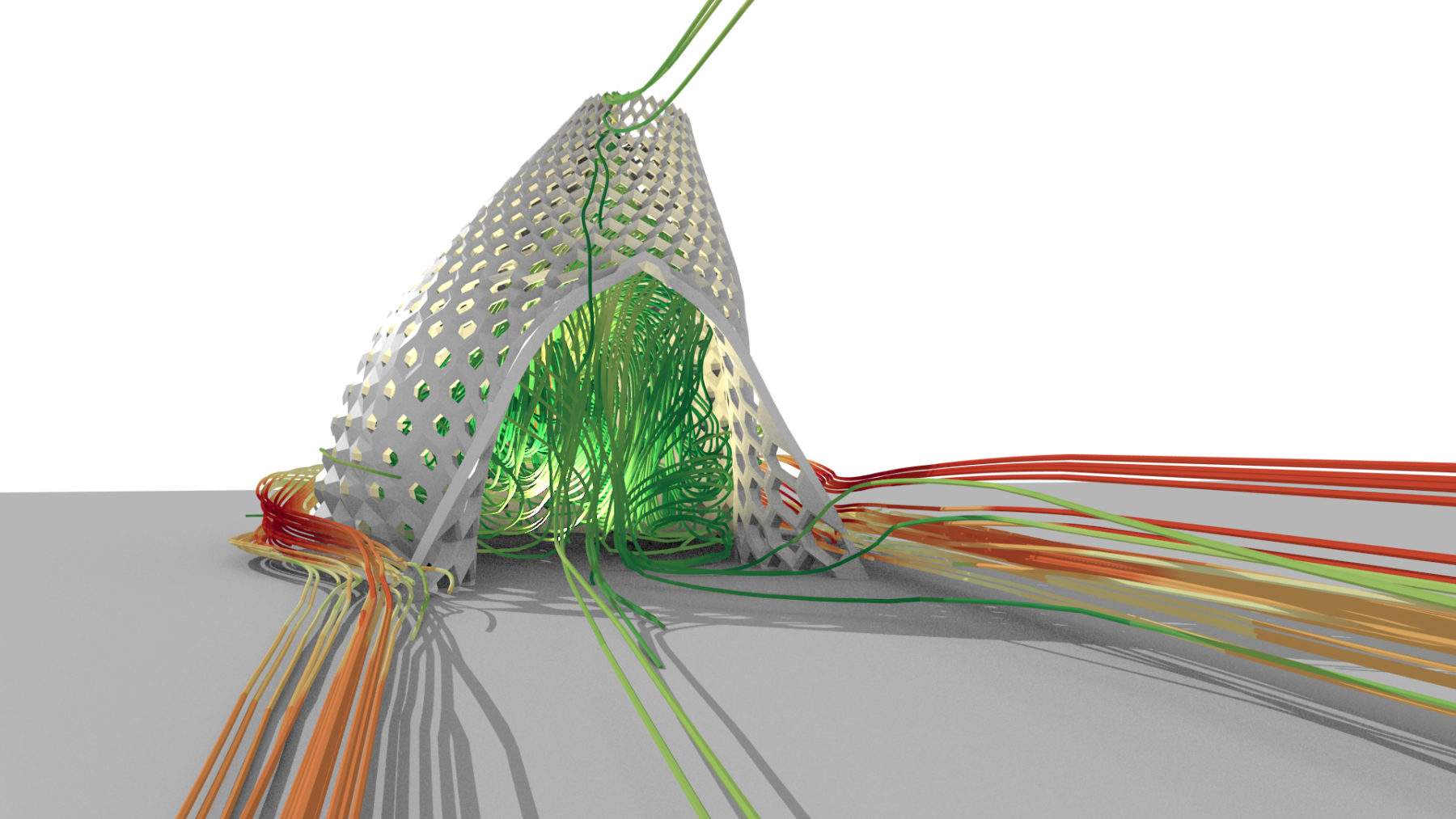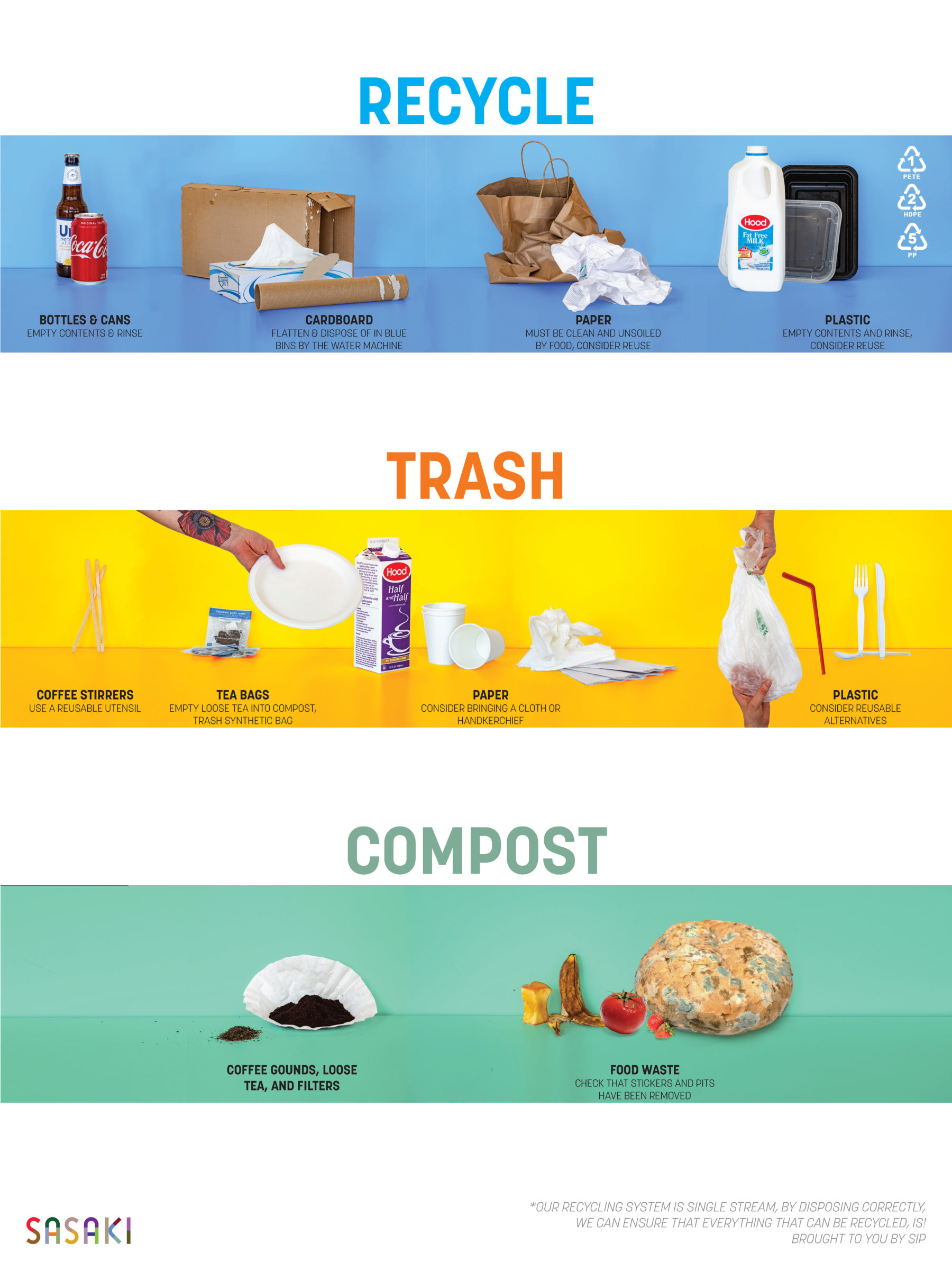What is SIP?

 Sasaki
Sasaki

Sustainable thinking has always been on the minds of Sasakians in our 60+ years of practice. We’ve made strides in our office and in our work to make the world a more inclusive and healthy place for all species. Our latest leaders in this initiative, aptly named SIP (Sustainability in Practice), representative the next generation of Sasakians committed to this goal.
Sprouting from a grassroots effort, SIP is a team of Sasakians committed to improving office practices through tangible actions. SIP sends out a monthly internal newsletter that creates greater awareness of sustainability topics inside and outside the office. These newsletters aim to dispel common misconceptions and provide resources that help individuals practice environmentally conscious habits.
Meanwhile, in our project work Sasaki strives for context-driven design work that leads to resilient, environmentally conscious buildings, landscapes, cities, and communities. In the midst of an environmental crisis, our industry is responsible for 48% of global energy use from buildings and construction. As we influence change with our projects and empower our clients to do the same, we strive to model these practices here at the office.
Sasaki is dedicated to walking the walk!
In doing so, we learn about what it takes to make sustainable lifestyle changes. The SIP group provides Sasakians with knowledge and tools that help us embody sustainable practices in our work, and that can extend to our lives outside of the office to help make a significant impact on our climate.
Our newsletters have addressed earth, wind, air, water, pollination, and more. These publications focus on one topic at a time to explore what individuals can do, how the office can be more sustainable, and what designers are doing in their project work. We’ve shared information about how to compost approximately 40% of household waste, which plants to buy for your desk, and how to reduce the trash Sasaki produces each year (which weighs as much as ten elephants). On the client side we’ve highlighted ways sustainability is embedded in projects such as composting at Akamai Technologies new global headquarters, internal wind research, use of the chimney effect at the Universidad de Lima, and pollinator gardens at Lehigh University’s new student housing facility.

When working on the Greenway WinterLight Pavillion, a dynamic public art piece, Sasakians experimented with using wind in their architecture practice by designing a hypothetical warming hut on the Boston Greenway. Photo courtesy of Klimaat Consulting & Innovation Inc.

The Lehigh University New Student Housing project in Bethlehem, PA includes a locally-researched forest and meadow landscape rich in pollinator habitat and resources. Devised as an alternative to traditional turf, this new, native landscape supports the university’s commitment to sustainability.
In each issue, SIP looks to experts in the field and within our studio walls to deepen our discussions around sustainability. This year, Meiring Beyers of Klimaat visited our studio to educate us about visualizing and designing with wind, and Alejandra Menchaca of Thornton Tomasetti, Sadaf Jafari of BR+A, and Jacob Knowles, Director of Sustainable design at BR+A, led a natural ventilation workshop. In one of our internal SIP newsletters, Sasaki ecologist Andy Sell shared information about local pollinators, which was followed by a special tour of Sasaki’s pollinator garden. It’s important to the SIP team that the office has a chance to learn about these topics not only through our newsletters, but also by engaging with experts and sharing knowledge in person.
For Earth Day, the SIP team organized a cleanup of the portion of the Charles River that runs adjacent to our office.


We collected bags of trash that contained bottles, cans, a bat, and a lot of cigarettes. Following the cleanup, everyone was invited to a sustainability-themed potluck where colleagues served amazing dishes like locally sourced homemade bread and jam, venison stew, and vegetable dishes galore. The potluck stirred up conversations about how to eat and cook with our environment in mind.

During the Charles River cleanup, Sasakians also cleaned up the Watertown Riverfront Braille Trail, a wire trail guiding system for low-sighted and blind visitors can use to navigate the park terrain independently.
The SIP team was instrumental in creating the Sasaki office’s aforementioned backyard pollinator garden. Through diligent testing, the Sasaki Pollinator Garden continues to grow and evolve. Our garden team has been making changes throughout the year, like removing aggressive plants, planting spring-blooming bulbs, and installing new juvenile trees with the intent of adding more pollinator plants in 2020. Along with these additions, a new management strategy of delayed garden cleanup will ensure insects and wildlife benefit from shelter and food resources all winter long.

Purple Woodland Sage (Salvia nemorosa) and Small sundrops (Oenothera perennis) populate the Sasaki Pollinator Garden.
Additionally, SIP has implemented a number of initiatives to reduce office waste. We designed recycling posters that detail what can be recycled and composted in our office and the city of Watertown. The SIP team believes in keeping up a good practice of recycling, so that any objects that can be repurposed find a new home. Of course, reusing or not using at all are the best practices.

Posters around the office offer employees a guide for how to dispose of different kinds of waste.
To that end, our office recently stopped supplying disposable plates and plasticware. To alleviate the impact of this change, the SIP team has provided swap boxes for staff to donated unwanted kitchenware that others might be able to use at lunch.
The SIP team has also influenced the packaging of our shared food goods: this year Sasaki also switched to supplying the office with locally sourced milk that’s packaged in returnable glass bottles, and our tea bags are now compostable rather than plastic.
Additionally, SIP is currently working on sourcing food from sustainable vendors when providing catered meals. So far, we have stopped serving beef—a major contributor to carbon emissions—and increased vegan and vegetarian options. Our new vendors use less disposable packaging, encouraging us all to bring a plate and fork to catered events and meetings.

SIP plans to continue bringing the office together to learn about how we can better care for our environment.
The SIP team has learned a lot during our first year. It can be a challenge to implement impactful changes when climate change looms large, but we believe small actions begin to add up to a larger impact. We are excited and proud of what we have accomplished. Next year, we look forward to tackling new SIP newsletter topics, such as transportation and WELL certification. We are planning a bigger earth day celebration, and more events to increase knowledge and awareness around the office.
The SIP team uses our office as a testing ground for how design and knowledge impact users. As we ask our clients to change their habits, we can test out the pitfalls and successes of design moves like kitchen configurations, indoor plants, or pollinator gardens. How can we recommend composting without demonstrating it ourselves?
Already, our office is making a more collaborative effort to care for our environment and each other. Small habits like drinking local milk and using reusable plates add up when all 300 of our employees are drinking coffee and eating lunch every day. The more knowledge we have, the more we can spread sustainable habits through our networks. By educating each other on resilient design techniques and helpful resources, we are enhancing our projects, making an even bigger impact with our work around the world. Sasaki plans to lead the industry in sustainability standards, inside our office and out.
Read on to explore the history of internal sustainability groups at Sasaki.
In the late 2000s, Sasaki’s sustainability group, then known as Green Group, sent out a similar digest called GreenNEWS.

These newsletters (which were printed on 100% post-consumer paper) educated the office on local species, LEED certification, exciting sustainability initiatives in our projects and in the industry, and more.


GreenNEWS celebrated Sasaki employees using sustainable practices and recognized strides Sasaki made as a firm.

GreenNEWS also helped Sasakians learn about different kinds of recycling and waste management!
These newsletters (which were printed on 100% post-consumer paper) educated the office on local species, LEED certification, exciting sustainability initiatives in our projects and in the industry, and more.
GreenNEWS celebrated Sasaki employees using sustainable practices and recognized strides Sasaki made as a firm.
GreenNEWS also helped Sasakians learn about different kinds of recycling and waste management!